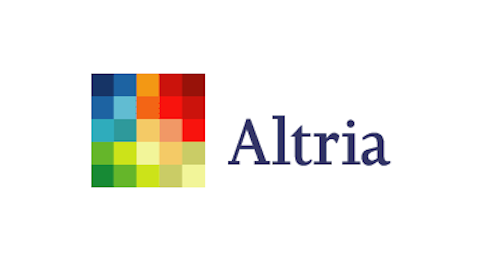
Am I talking about cocaine? Marijuana? No, just the humble cigarette.
A recent report from research group KPMG, and commissioned by Philip Morris International Inc. (NYSE:PM), revealed that while total consumption of cigarettes in Europe has fallen in recent years, the illegal contraband and counterfeit trade has grown from 8.3% of total consumption to 11.1%. The report suggests that the high profitability and low risk of penalties attracts organized crime, which can use the trade as a cash cow to fund far more objectionable activities. An ad from British American Tobacco (NYSEMKT:BTI) goes as far as to suggest that the trade could even be indirectly funding terrorism.
There’s a black market for everything
But why are people buying illegal cigarettes? Restrictions differ from country to country, but on the whole, cigarettes are legal and can easily be purchased. The trouble is that, because taxes and regulations vary so widely between countries, the price for consumers varies as well. A pack of Marlboros costs 6.69 euros in Sweden, and 13.18 euros in next-door Norway. In Ukraine, they sell for just 1.31 euros.
The differential makes it easy for smugglers to buy large quantities in cheap countries, bring them into more expensive countries, and sell them at some in-between price to profit. These large quantities are available in part because the large cigarette companies overproduce in cheaper countries. Ukrainian authorities estimate that the world’s four leading tobacco companies — Philip Morris International Inc. (NYSE:PM), Japan Tobacco, Imperial Tobacco, and British American Tobacco — produced about 130 billion cigarettes in the country in 2008, 30% more than the local market consumed or legally exported. The rest simply disappeared into the black market, making Ukraine one of the top sources of non-counterfeit black market cigarettes.
What’s the impact?
Apart from the whole “funding organized crime” thing, the trade has a negative impact on both countries and cigarette manufacturers. It is estimated that governments around the world lost $40 billion to $50 billion in tax revenue in 2006, and that’s just from lost cigarette taxes — the losses are higher if you factor in things like unpaid income taxes from the money smugglers make.
As for manufacturers, there are two problems they face. The first should be obvious: If any of them are knowingly involved in undeclared overproduction, they may be criminally liable. Even if they aren’t knowingly involved, government authorities are likely to decide that manufactures are at least partially responsible for cleaning up the mess. The report by KPMG, for example, was only commissioned by Philip Morris International Inc. (NYSE:PM) as part of a 2004 legal settlement with European regulators.
The other problem is that not all illegal cigarettes are legitimate ones being smuggled. Many are simply counterfeits, dressed up to look like a real pack of Marlboros or Superkings, and thus are not just a source of lost tax revenue but also lost sales for the companies. In 2012, 2.4% of all illicit cigarettes in Europe were counterfeit Philip Morris International Inc. (NYSE:PM) brands.

